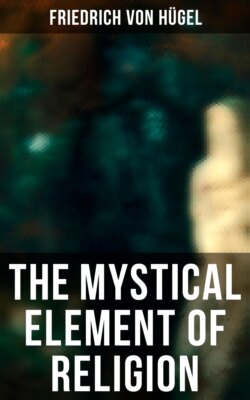Читать книгу The Mystical Element of Religion - Friedrich von Hügel - Страница 30
На сайте Литреса книга снята с продажи.
1. Three characteristics of this scientific spirit.
ОглавлениеNow this scientific spirit has hitherto, since its birth at the Renaissance, ever tended to the ever-increasing development of three main characteristics, which are indeed but several aspects of one single aim and end. There was and is, for one thing, the passion for Clearness, which finds its expression in the application of Mathematics and of the Quantitative view and standard to all and every subject-matter, in so far as the latter is conceived as being truly knowable at all. There was and is, for another, the great concept of Law, of an iron Necessity running through and expressing itself in all things, one great Determinism, before which all emotion and volition, all concepts of Spontaneity and Liberty, of Personality and Spirit, either Human or Divine, melt away, as so many petty subjective wilfulnesses of selfish, childish, “provincial” man, bent on fantastically humanizing this great, cold thing, the Universe, into something responsive to his own profoundly unimportant and objectively uninteresting sensations and demands. There was and is, for a third thing, a vigorous Monism, both in the means and in the end of this view. Our sources of information are but one,—the reasoning, reckoning Intellect, backed up by readily repeatable, directly verifiable Experiment. The resultant information is but one,—the Universe within and without, a strict unbroken Mechanism.
If we look at the most characteristically modern elements of Descartes, and, above all, of Spinoza, we cannot fail to find throughout, as the reaction of this Scientific spirit upon Philosophy, the passion for those three things: for Clearness and ready Transferableness of ideas; for one universal, undeniable Common Element and Measure for all knowledge of every degree and kind; and for Law, omnipresent and inexorable. That is, we have here a passion for Thing as over against, as above, Person; for the elimination of all wilfulness, even at the cost of will itself, of all indetermination, obscurity and chance, even at the cost of starving and drying up whole regions of our complex nature, whole sources of information, and of violently simplifying and impoverishing the outlook on to reality both within us and without.
